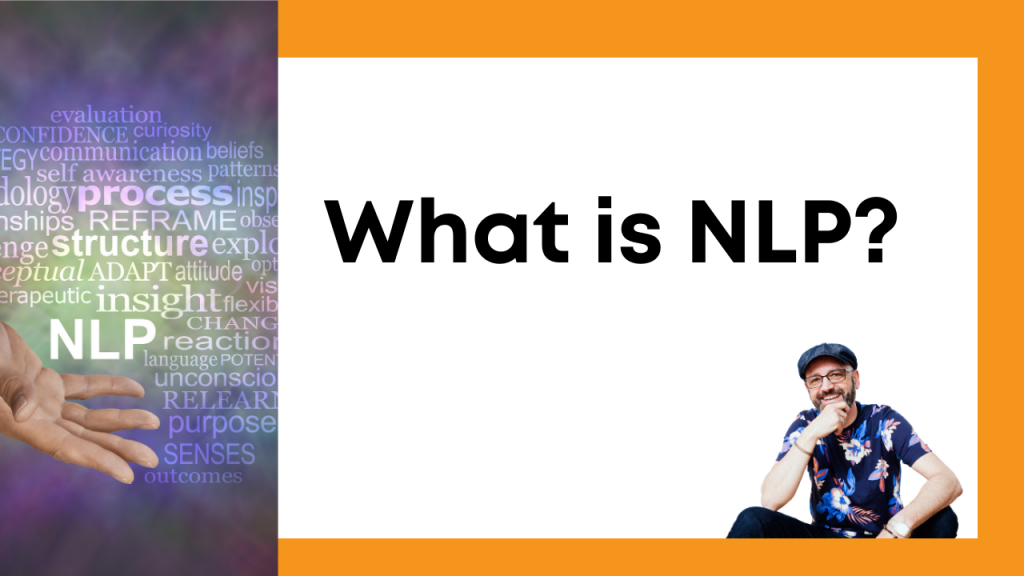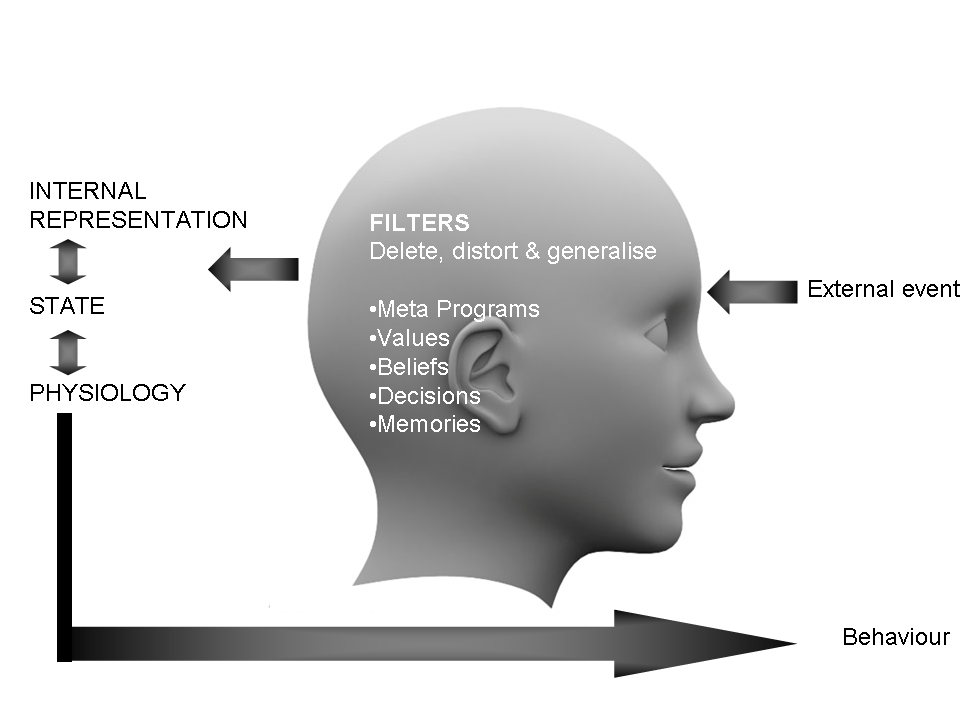What is NLP?

A Look at Neuro-linguistic programming
Neuro-linguistic programming (NLP) is a personal development technique that can be used to treat anxiety, depression, and a wide range of phobias. It can also be used to help people change their thought patterns and achieve greater success in their lives. NLP uses behavioral and communication methods to help people change their thoughts, actions, and emotions.
If you’re a successful, ambitious health and wellness professional, you may be interested in joining My Successful Life’s NLP Academy. This article will look at the benefits NLP can bring to your life.
What is NLP?
NLP is a technique that was developed in the ’70s by John Grinder and Richard Bandler. They studied people who excelled in their field, were amazing communicators, and effectively implemented personal development. They began to research why some people became successful, while others seemed to struggle and fail. NLP was created by discovering the belief systems, mindset, values, and strategies used by successful people.
NLP allows people to implement personal and professional change in their life quickly. It’s a powerful behavioural science that enables people to change how they feel, communicate, and behave.
If you’ve noticed that you keep repeating patterns in your life, whether at work or in your personal relationships, NLP will help you to change them. It will help to make you a more effective communicator with all types of people.
Why is Noam Chomsky so important?
Noam Chomsky is a famouscognitive scientist who’s work inspired the research and development that was carried out to create NLP. He has a significant impact on the field of linguistics and was also a philosopher and socio-political critic. Chomsky studied at the University of Pennsylvania, where he developed his theory of transformational grammar, which later was instrumental in redeveloping language study.
Noam Chomsky is important as he is often known as “the father of modern linguistics” and is one of the cognitive science founders. During his career, he taught at the Massachusetts Institute of Technology (MIT) and Columbia University. He founded a graduate program in linguistics in Massachusetts.
Noam Chomsky studied various topics that are important to Neurolinguistics programming, including psychology, philosophy, neuroscience, and linguistics. Chomsky helped to change cognitive science ideas, particularly his ideas that disproved Skinner’s behaviourism theory.
Is non-verbal communication more honest?
It’s common for people not to say precisely what they mean or to hide how they feel. Non-verbal communication ismore honest as it’s unconscious and often shows people’s real reactions to situations. For example, if you see something that you like the look of, your pupils will dilate and your face my flush.
Many people unconsciously gesture with their hands while they speak. This type of non-verbal communication is automatic and more challenging to control than verbal communication. Research shows that your body communicates more non verbally then it does verbally. Scientists have often be quoted as saying that up to 93% of communication is non-verbal, however this is actually a myth!
Hand gestures, eye contact, and tone of voice are all examples of non-verbal communication. These are all very powerful in human interactions and often show people’s authentic feelings.
What is NLP good for?
NLP practitioners help people change their thoughts and behaviours to help them achieve the desired outcome. Nuro-linguistic programming can be used to treat phobias and common mental health problems such as anxiety disorders or PTSD. It can also be used to improve workplace performance, achieve greater success, improve productivity, and increase levels of happiness. NLP aims to help individuals change their thoughts and actions using a variety of behavioural and communication techniques to change how they perceive the world. NLP works on a diverse range of issues that people commonly face.
NLP helps to identify and change thought patterns that are holding you back. It also looks at successful people’s behaviours and teaches personal development skills, such as confidence building, self-reflection, and communication skills. Professionals can use NLP for career advancement, as it helps people achieve work-orientated goals.
The quality of your life is dependant on your emotional states and the quality of your relationships. If there are things in your life that scare you and stop you from doing things, NLP can help you change the situation.
NLP can help you at work as it will help to further your success. If you fear presentations, NLP techniques can be used to allow you to excel at public speaking and be able to present information to groups effectively. If you work in the health care field, it’s important to deliver information clearly and concisely to your patients and colleagues. Whether you want to inspire or motivate NLP will help you become an influencer of others.
Many people have internal conflicts and waste time and energy being in two-minds about situations. NLP allows you to change your thought patterns to help you make clearer decisions and find direction. If you’re sometimes able to achieve your goals, but sometimes don’t, you’ll be looking for more consistent results.
If you’ve recently been feeling like you’re stuck in a rut and want to make changes in your life, but don’t know how to begin. NLP can help you make the changes you need and deserve and will help improve the quality of your life. You’ll be able to move away from negative emotions and can consciously choose how you want to feel instead.
Many professionals have an unhealthy relationship with money; NLP can change that. The techniques can also be used if you’re into sports and are looking to master techniques and improve your performance.
The meta model demystified
The meta model allows people to find distortions in their thinking patterns. We rely on communication to share experiences. However, we are often unconsciously limiting ourselves through the language we use. Distorted thought patterns change our perception of reality. The meta model helps people identify distortions in their thoughts and language to improve their relationships and have an improved internal dialogue.
The meta model has three categories, known as distortion, deletion, and generalisation. This model helps people to challenge their verbal patterns to help change their situation. There are thirteen patterns that are present in everyday language.
NLP practitioners work with clients using the meta model patterns. Each pattern has a set of questions and associated challenges that allow the client to make changes to limitations that have been holding them back. Mental maps are used to indicate clients’ values, beliefs, and thought patterns, which helps clients access choices within themselves.
The meta model has three elements that help people to modify their language to create more positive outcomes.
Distortion
Many people experience distorted thinking, which can come in many different forms and hold you back from achieving success. In the worst cases, distorted thinking can be destructive and contributes to mental health problems.
Common distortions include ‘mind-reading,’ where you are imagining what another person is thinking or feeling with no basis in any form of logic or sensory observation. ‘Black and white thinking’ or ‘distorted assumptions.’ The meta model allows questions to be asked that will challenge these types of distortions.
Generalisation
Being too general and not looking at the bigger picture can be a problem for many people. You may find yourself going over a specific experience and generalising the situation, making it difficult to move on. Everyone sees the world and their place in society slightly differently; we create our own set of rules with which we live life by. Humans generalise their experiences so that when they come up against a similar experience in the future, they will know what to do. Working with generalisation and challenging thoughts can help people let go of phobias.
Many people have unconsciously created rules and values that hold them back from achieving the success they deserve. NLP helps to create a code in the mind map, which can rid clients of language and thoughts that are no longer serving them.
Deletion
Thought or language patterns that include deletion will omit parts of the mental map, which won’t appear in verbal expression. If we delete information, we will hold ourselves back from achieving success as we will think of ourselves as having limited options.
Conclusion
If you could change anything in your life, what would it be? What if you were able to make this change? How would your life be then? The performance academy can help you make positive changes in your life. Using NLP techniques, you’ll be able to avoid procrastination, improve communication with clients and patients, and maintain your work-life balance. The performance academy will allow you to learn practical tools that are accessible and easy to implement in your day to day life.
Interested? Find out more about what the Performance Academy, created by My Successful Life, can do for you!
Comments
What techniques are used??
All techniques used have the basis in one of 3 areas:
- Business – Mark has a Masters Degree in Business (MBA) and has run successful businesses for the last 23 years, most recently as a marketing consultant for dentists.
- Neuro Linguistic Programming (NLP) – Mark is a master practitioner.
- Life! – do a quick search for ‘Mark Oborn’ or ‘Lost Without Her’ to see the experiences that Mark has been through in life. The learning from those experiences is now available to you.
What is NLP?
NLP is a concept which guides the user towards success that leaves behind a trail of techniques that can be practically utilised. NLP can be utilised by doctors, dentists, physiotherapists, osteopaths, chiropractors or anyone working in health and wellness.
In NeuroLinguistic Programming it is however more than a trail of techniques, it is an attitude and a methodology of modelling and continual improvement and experimentation in order to achieve a desired result.
There is no one thing which defines NLP, as it is an eclectic mix of thoughts and ideas and techniques drawn from a wide range of psychological disciplines and taking inspiration and research from people such as Robert Dilts, Milton Erickson, Virginia Satir, Fritz Perls and of course the 2 people which brought all of the thinking together, Richard Bandler and Jonathan Grinder.
Focus on What You Want
Our unconscious minds are REALLY good at getting what we want, so we better be really clear about what we want. For example a person may be focusing on NOT BEING POOR, so the focus is on poverty… and guess what they get? Poverty.
The change in mind set to focus on WEALTH instead of POVERTY is a subtle one yet a powerful change to make. So many times doctors, dentists and other health and wellness practitioners are so focused on their clients/patients that they forget to focus on themselves and their own business.
The techniques used throughout the Performance Academy help us to identify the thought patterns and interupt them, remove them and install new (more helpful )ones.
What Does NLP Do?
NLP deals with the internal filters that we all use to make sense of the world, the way we store memories, the way we talk to ourselves, the way we’ve been programmed to run over the years. By understanding how these filters affect our state, physiology and internal representation of the world it allows us to change behaviours really effectively.
Is NLP Manipulative?
Yes, is the simple answer. People are often concerned that others will manipulate them with NLP, so let’s consider this. Would it be good to manipulate a person’s mind so that they:
- Learnt quicker
- Remembered what they learnt longer
- Were able to face challenges never before faced (phobias, presentations, public speaking etc)
- Achieved their goals in business, life, relationships and family
- Dealt with past anger, sadness, fear, hurt and guilt to live a more fulfilling life
or perhaps even helping a patient understand and follow a treatment plan!



